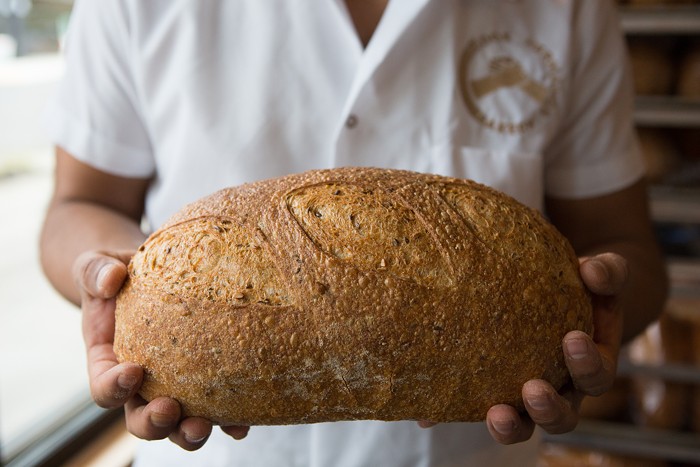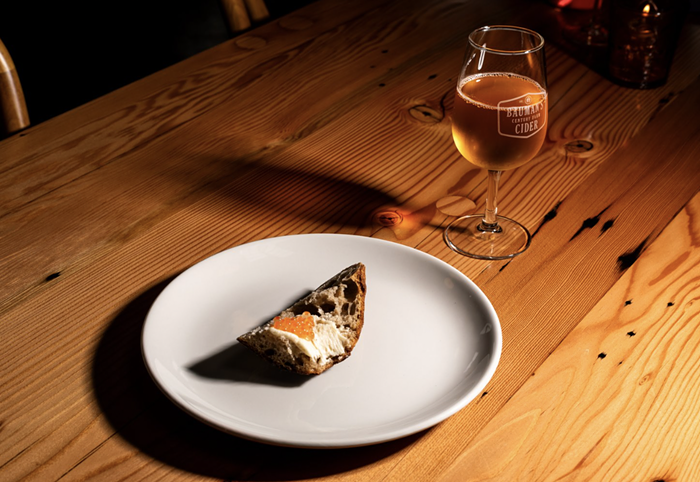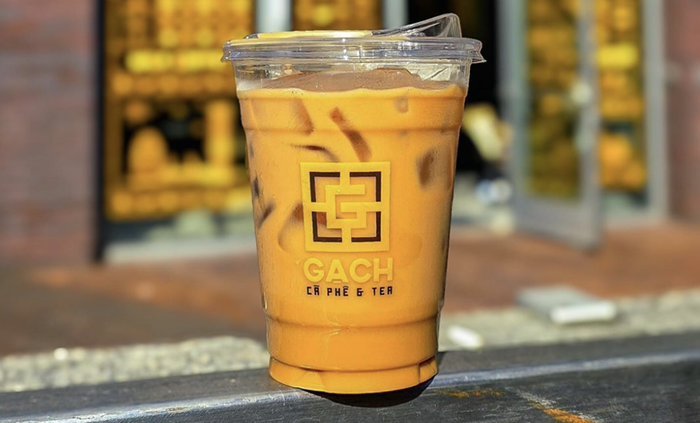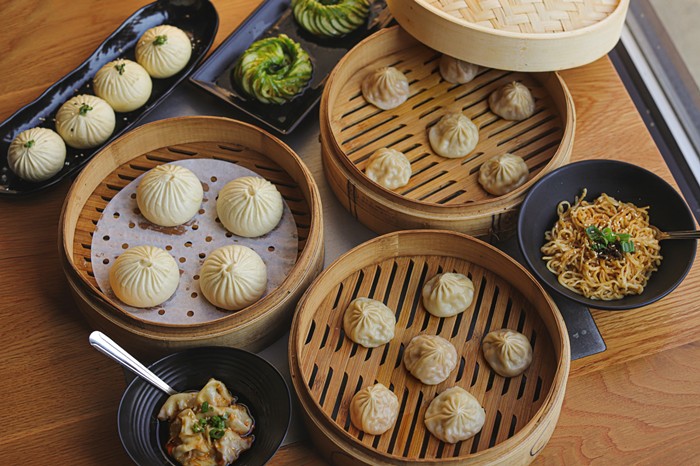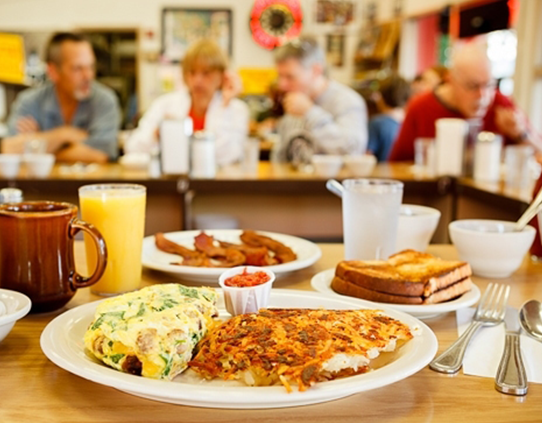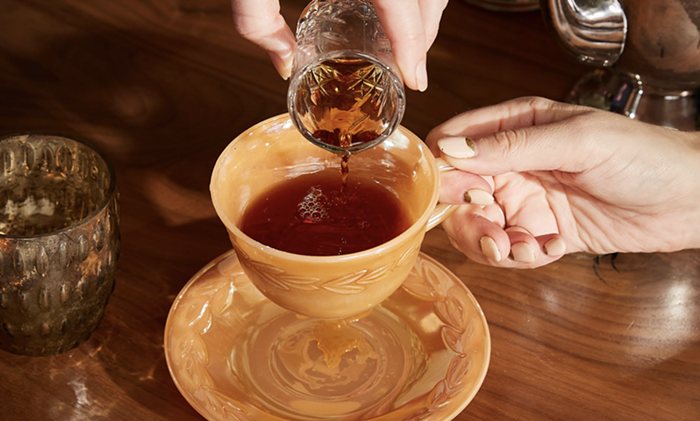“You’re just trying to impress a girl,” says Sheila Bommakanti, ostensibly to me but with her gaze on her wife, Elizabeth Golay, “and you end up with a restaurant.” The three of us are at the South Indian restaurant they own together, Tiffin Asha, where Golay is the chef. Though Golay had been a fan of Bommakanti’s band when they met, Bommakanti claims she used her heritage to lure the cook on a date. “I said”—she puts on a comically suave affect—“‘Have you ever had South Indian food?’”
Some 17 years later, they still seem deeply impressed by each other. When I ask one of them a question, they both answer, Bommakanti meandering casually from the present moment into their history, Golay gently steering her back to the topic at hand when necessary. They look at each other as often as at me, seeming to read the answers to my questions in each other’s faces.
I’m reminded that even in Tiffin Asha’s early days as a food cart on Mississippi, there was an atmosphere of almost impossible easygoingness, considering many of the customers would require an education on just what this food—these tiffins and their accoutrement—was.
The cart slung dosas, idlis, and vadas—traditional fermented rice or lentil batters cooked by various means—with vibrant chutneys and piquant “gunpowder” spice blends, in nontraditional forms, like the Hot Chick (the huge, crepe-like dosa stuffed with fried chicken pakora) or Vada Holes (a sweet-savory donut hole). That tiffin fare is now on a Sunday brunch menu, to make way for a seasonal dinner menu Thursday through Saturday evenings.
It’s not easy food to make, according to Golay: “Fermentation changes every single day.” Bommakanti claims Golay was simply meant for it. “This food tests you,” she says. “I don’t know about how to make any of it, but I know how it’s supposed to taste.” And from the very beginning, Bommakanti says, “half of our clientele was Indian.”
In fact, this interview with Bommakanti and Golay might be the first time I’ve been to Tiffin Asha and not been in the minority as a non-Indian person. “We also get a lot of biracial couples,” Bommakanti says. She’s glad to see it. After a career as a musician, Bommakanti earned a law degree and became a public defender, and she says she’d often represent people who needed “a place where they could be comfortable to just talk about their day.” She also says she and Golay came of age in a time when it was a struggle for people to be out: “Like, where can we go on a date that we wouldn’t be harassed?”
There’s an activist spirit built into Tiffin Asha—in fact, Golay got her culinary start cooking in soup kitchens in Seattle. “It sparked my interest,” she says, “but it also just felt good feeding people.” Bommakanti says “visibility, safe spaces—just owning a business and being who we are is even more important [since 2016]. Those are the things that actually matter, if this country is going to be called great.” Surprising herself, she says, “Oh my god, I’m getting teary-eyed!” and immediately recalls her last trial as a public defender: trying not to get choked up as she gave her final arguments in the courtroom. Bommakanti was a pro, and stifled her emotions, but Golay recognized the hidden passion. Bommakanti says, “And I’m like, ‘Yeah, because this kid shouldn’t be convicted.’”
She takes a brief second to compose herself and says, “For the record, we won the case,” and we go back to talking about food, which is to say talking about Bommakanti and Golay, their marriage, their history, their passion and compassion. The meal is light, but filling.


